- Home
- Karen Hawkins
The Lady in the Tower Page 2
The Lady in the Tower Read online
Page 2
“What happened?” Jane asked.
“It appears Her Grace suffered—”
“I beg your pardon, but I asked her not you.”
That brow lifted again. “Hmm.”
Jane couldn’t tell if he was clearing his throat, searching for words to set her on her heels, or what, but the noise annoyed her.
The duchess made a face. “All this fuss over nothing.”
Jane simply waited. Catherine made light of a great many things, one of the most significant being her health and state of mind, which Jane believed were inextricably linked. She would never forget how their paths first had crossed two years ago. She’d been attending a garden party with Albert, and had retired to one of the rooms set aside for the ladies. She’d just entered when Catherine burst into the room, white-faced. She would have collapsed if not for Jane helping her through the episode with breathing techniques and conversation. Later, when she was able to speak, Catherine had said she’d never recovered so quickly or easily. She and Jane had been friends ever since, a friendship that had grown closer when they’d both lost their husbands within six months of each other: Jane’s to a wasting illness, and Catherine’s to suicide.
Jane took Catherine’s wrist and measured her pulse. A bit fast, but steady. “When did this spell begin?”
“I was at breakfast, reading through the newspaper and—” Catherine paled, pressed a hand to her throat, and clenched her eyes shut.
Jane opened her leather bag. “Dizziness again?” At her friend’s murmur of assent, she took out a small wooden box from the case, and removed a small brown bottle. “Did you lose consciousness?”
“I just asked the same question.” Thornton’s voice rumbled like distant thunder. “I do know how to take a patient’s history.”
“Good for you, Thornton. I’m sure that comes in quite handy when you’re with one of your patients.” Jane looked up at him, and hated the fact that she had to do so to make eye contact. His face was more tanned than she remembered, yet there was a gauntness to his cheeks that had not been there when last they met. What had the man been up to? His gaze narrowed and she detected a bit of ice had entered his eyes. Good. Turning back to her friend, she asked, “You were saying?”
“No, I didn’t faint.” Catherine frowned. “At least I don’t believe so.”
Jane could feel Thornton’s gaze like a weight across her shoulders as she moved to unstopper the bottle, releasing scents of lavender and peppermint into the air. “How did you come to be in the morning room?”
The duchess hesitated. “I think I walked. I thought that if I could just rest upon the chaise for a moment, I might feel better.”
“Do you remember walking here?”
“Vaguely,” the duchess replied.
“I see.” She made to dab a bit of the oil concoction on her friend’s hand when Thornton seized Jane’s wrist.
He scowled. “If Her Grace is dizzy, smelling salts will only make her feel worse.”
“Agreed.” Jane jerked her hand free, his fingers leaving an odd trail of warmth. “And ammonia would only make her headache worse, which is why this isn’t hartshorn.”
His gaze flickered to Catherine. “Do you have the headache as well, Your Grace?”
“A bit, yes.”
Thornton scowled. “You didn’t mention it when I questioned you earlier.”
“You didn’t ask,” Catherine said, covering her eyes with a hand.
Thornton’s gaze narrowed and he gestured to the bottle in Jane’s hand. “What is that?”
“Essential oils to soothe her nerves.”
His mouth quirked, and even though Jane desperately wanted to erase his smug look, she couldn’t help noticing what a sensual mouth he had. I never noted that before. Her gaze flickered over him, eyeing with approval his blue coat, buff breeches, and black boots. Her memories of Sir Richard were so tinged with unpleasantness, she’d only remembered the bad aspects of his person. Which is how it should be. He’s nothing more than an inconvenience.
Turning away, Jane rubbed a spot of the oil on Catherine’s wrists, then moved behind the chaise to massage a little oil on the back of the duchess’s neck, and at her temples. “We’ve been through this before,” she said softly. “Remember what you must do?”
Dutifully, Catherine closed her eyes. “Breathe deep and remain still.”
Jane squeezed her shoulder. “That’s it. For now, rest. I’ll draw the curtains and ring for Higgins.”
“Oh, please do not. The man is a menace. I shall lie here like a good girl.” She cracked an eyelid. “For once.”
“That would be a lovely change.” Jane stoppered the bottle, then slipped it into her friend’s hand. “Just in case,” she whispered.
The duchess murmured her thanks, and returned to her concentrated breathing. When Jane packed up her case, she realized Thornton had gone. She told herself it was relief she felt, and not disappointment. The man frayed her nerves, and while she wasn’t sure why, the realization that he had any effect on her at all aggravated her.
She was tiptoeing from the room herself, when Catherine called her softly. “Did you get the tarot card I sent?”
Jane sighed. “I thought you said you were going to lie there like a good girl?”
The duchess opened her eyes to level a look that only she could manage. “I will. But there’s something you should know.”
“About the card?”
“No, about Thornton. He was quite attentive and listened very carefully to me when he first came.” Catherine leaned her head back against a pillow, though her gaze remained locked on Jane. “He’s not the dismissive physician you led me to believe.”
Jane stiffened. “You weren’t there when Albert died. You didn’t see how Thornton was.”
“You were quite upset. Perhaps Thornton was, too.” Catherine closed her eyes and pressed a hand to her forehead. “It’s possible neither of you remember that time correctly.”
Jane bit back a retort. Catherine was ill, so it wouldn’t do to argue with her. Not now, anyway. She turned back to the door when Catherine’s soft voice stopped her again.
“You also forgot to mention he’s deliciously handsome.”
“Handsome? Thornton?”
Catherine opened one eye. “If you say he isn’t, I’ll be forced to call you for a liar.”
Jane supposed Thornton had a certain male beauty. He had the strong jaw and aquiline nose of an aristocrat, and his now-bronzed skin belied the life of a simple peer. “Perhaps,” she said grudgingly. “Catherine, what is the point of mentioning these things?”
“Point?” The duchess sighed and closed her eyes again. “I’m not sure I have one, my dear.”
Jane narrowed her gaze. “Rest.” She left, quietly shutting the morning room door behind her. She turned toward the entryway, pausing when she realized she wasn’t alone in the foyer; Thornton stood at the bottom of the staircase, leaning casually against the newel post. Ready to pounce like a lion.
“Lady Kilkenny, I couldn’t allow you to leave without speaking to you first.” He left his indolent pose to step forward, leaning on his fashionable cane, to stand squarely in her path.
She instantly felt cornered, but refused to move. “I’m surprised you remember my name.”
“Let’s just say you left an impression.”
“I’m sure anyone who argues with you leaves an impression.”
To her surprise, his mouth quirked in amusement. “It’s been some months since last we met, and clearly not under the best of circumstances.”
“That is certainly one way of putting it.”
His gaze dipped to her blue frock and grey pelisse. Goodness, she’d been in such a rush to assure herself Catherine was well she’d completely forgotten to remove her coat.
“It’s been quite a while since your husband’s passing and yet you do not wear black.”
She drew herself up to her five foot five inch height. “My husband deplored seeing me in b
lack. It is in his honor that I don’t wear it.”
“Hmm.”
He was doing it again, making that noncommittal sound. What did it even mean? It reminded her of when he’d ministered to Albert, “hmm”-ing her every suggestion and question. “I don’t—”
“Sensible, really.”
She blinked. “I beg your pardon?”
“Sensible, I said. It’s a ridiculous tradition, wearing black, for what an entire year? Why does society demand one display one’s grief for all to see?” He shook his head. “I’m amazed how people spend such time looking to the past rather than moving forward.” He gestured to her gown. “As you’ve done.”
“Well . . . that’s not . . . I mean, it is, but . . . Thank you. I think.”
“Of course.” He frowned. “Did you think I judged you otherwise?”
She looked at him, measured his face. They’d both shifted throughout their exchange, yet she was surprised to realize that they were now standing closer to one another – much closer. “I’m not sure what I think.”
“I find that hard to believe. You strike me as a woman who very much knows her mind.” He smiled.
The oddest tingle went through her. “I do know my mind, which is to my detriment, some would say.”
“Hmm.” His gaze flickered over her, lingering on her hair. “Not that you wouldn’t look stunning in black. Especially with that blond hair of yours . . . lovely.”
For the first time in her life, Jane found herself speechless. As she stood there, struggling for something to say, she became aware of other things. For one, how very tall he was. The top of her head barely reached his collarbone. She could smell his aftershave, too, a woodsy blend of spice and male. And standing this close, the bluish shadow of his whiskers at his jaw were clearly visible. She curled her fingers into her palm, wondering how those whiskers would feel under her fingertips. Good God, I must stop this. “I’m sorry, but I must be on my way.”
“Of course. I’ll have Higgins bring your carriage around.”
“I didn’t bring a carriage. Higgins can call a hackney.”
His brows lifted. “You came in a hired vehicle? Then I shall see you home in my carriage.”
Her fingers tightened about the handle of her bag. If he overwhelmed her in the duchess’s front hall, what would he do in the confines of a closed carriage? A spark of curiosity mingled with something else, both of which she ruthlessly pushed aside. “Thank you, but that’s not necessary.”
“Not necessary, but sensible. Ah, Higgins. Perfect timing, my good fellow.”
She turned to see the wizened butler emerging from the back of the house, Thornton’s hat and coat in hand. “I took it upon myself to have your carriage brought around, sir.” He thrust the accouterments at Thornton as if he couldn’t be rid of the man fast enough.
Of course Thornton had his own carriage. His patients could afford to pay far beyond the usual physician’s salary. She couldn’t decide if she was impressed, or envious. Probably a measure of both.
As Thornton donned his coat, Higgins turned to her. “How is Her Grace, my lady?”
“She’s resting, Higgins. Please assure she is not disturbed.”
“Certainly, my lady.”
Thornton suddenly turned to Jane. “I’d give her to . . . luncheon, would you say? Before anyone should disturb her?”
For the second time in as many minutes, Jane was left thunderstruck. Before, when Albert had been ill, Sir Richard hadn’t deigned to include her at all.
Jane nodded to the servant. “Sir Richard is correct.”
Higgins frowned. “But she’ll need her breakfast, for she had nothing to eat.”
“Her Grace needs rest more than food right now. However, if she’s yet to stir by luncheon, look in on her, but quietly. If she’s awake, then by all means bring her something but keep it light.”
“Agreed,” Thornton said. “No roasted beef, or cream sauces. If she’s still sleeping, leave her alone. She can eat when she awakes.”
Higgins looked resentful, but Jane gently pushed the point home. “Is that understood, Higgins?”
The servant cast another doubtful look at Thornton, but nodded. “As you say, my lady.”
“Thank you, Higgins. Her Grace is lucky to have you to care for her.” At this, he beamed, and straightened as much as his stooped spine would allow.
Thornton held the door open. Outside on the curb stood a well-rigged black landau. “May I have your direction, my lady?”
The thought of sitting in another closed carriage, especially with Thornton so close, was enough to unsettle her insides. But to refuse his offer now, after his professional courtesy, would seem mean-spirited.
With a mental sigh, she gave him her address and accepted his hand into the carriage. She only hoped, for both their sakes, she wouldn’t regret the decision.
Chapter 3
Richard tilted his head to consider his traveling companion. So this was the “wicked widow.” Despite the October chill, she wore neither bonnet nor gloves; rather than boots, she wore thin slippers, the sort one might wear to tea. He thought it highly likely that, in her determination to quickly come to her friend’s side, she’d barely remembered to don the coat. It had been interesting to watch her attend the duchess. I wonder the purpose of the essential oils. He would ask, but as soon as the carriage had lurched forward, she’d turned to stare out the window as if transfixed by the scenery, thereby eliminating the need for conversation.
Perhaps that’s for the best. And yet he couldn’t stop looking at her pure profile. Such a lovely nose, and those lips—He shook his head at his ridiculous thoughts. I’ve seen lovely women before; there’s no reason to think this one is any different.
Perhaps he felt this way because he’d known and respected her father. There weren’t many in London’s medical field who did not know of Sir Reginald Fitzgerald. His surgical skills had been widely lauded, and as a student, Richard had been fortunate to observe the old man in action in the surgical theater. He’d been so impressed that he’d toyed with the idea of quitting the Royal College and apprenticing surgery instead. Napoleon had altered that plan, and despite everything that had happened to him on the Continent, Richard regretted nothing.
He noted how Lady Kilkenny’s lips were now pressed into a stubborn line. She was both more and less than his memory recalled. He’d remembered her beauty, of course. He’d been hard pressed to forget it. Wheat-blonde hair with a bewitching tendency to curl. Storm-blue eyes that reflected every thought and emotion. A feminine, lithe figure that belied a will he had discovered was indomitable at best, and inconveniently irritating at worst.
When he’d first met her, resentful of his presence and distressed at her husband’s looming death, her loveliness had affected him far more than it should have. As was only proper, she’d been oblivious to his reaction, which he’d hidden as well as he could, and for that he was thankful. But for a man who prided himself on his professionalism, the fact that he’d let her bother him at all still rankled.
Since then, he’d been tantalized with her appearance in the scandal sheets as the “wicked widow.” There were several circulating stories, each with varied degrees of sensational, indecent accounts. One had her stripping naked to swim in the ornamental lake at Ranelagh. Another had her carousing with gamesters in Vauxhall. The most recent had her undressing a man in the lobby of a hotel.
One thing he had been able to gather from the stories: apparently someone always ended up naked.
He tried reconciling the image of the “wicked widow,” the memory he had of her from nearly a year ago, and the woman who sat across from him now. When he’d first met her, grief and exhaustion had given her a veil of fragility. Then, after reading about her in the gossip columns, his imagination had added layers of sultry sensuousness. But now that he sat across from her in his own carriage, and could actually see her and not just rely upon his overly excited imagination, he realized that Lady Kilkenny reflected ne
ither of the images he’d cultivated. Instead of delicate paleness, her complexion had the creamy rosiness of good health. Instead of audacious brazenness, she appeared every inch the collected, elegant gentlewoman.
That wasn’t to say she wasn’t bold, for she was. She’d had no trouble interjecting herself this morning into his consult with the duchess.
It had been an interesting morning. Clearly she and the duchess were far more than acquaintances. However, the needs of the patient always came first, despite what the physician wanted, desired or even needed. This was the only reason he’d allowed her to progress at all with her so-called essential oils. Since the duchess had seemed to be soothed by them, and Jane’s presence, there had been no harm in allowing it.
He flexed his sore calf, the cold making it ache. If his companion hadn’t been with him, he would have stretched his leg onto the seat opposite. But as it was, the seat was occupied, and he found that despite his discomfort, he was glad of it.
The landau shuddered suddenly as it hit a bump in the road and he gritted his teeth against the pain that launched through his leg. He glanced at his companion, and was gratified that she didn’t seem to notice. Instead, she was gripping the door handle as if ready to fling it open and make a mad dash for freedom.
She’s a bundle of nerves, this one. “I was sorry to hear of your father’s passing. I admired him greatly.”
Her gaze finally turned his way. “Thank you.”
“Did he teach you?” At her raised brow, he continued, “You dealt well with the duchess.”
“He taught me everything he knew,” she said simply.
When Richard thought of the blood-soaked procedures a surgeon dealt with, he couldn’t keep the disbelief from his tone. “All of them?”
Her eyes flashed. “I needn’t have attended the Royal College to be a capable healer. I assisted my father whenever he had patients at the house, and I steeped his potions and tonics when he became too busy—” she gave him a low look, “—speaking to lecture halls filled with boys who wouldn’t know a forceps from a lancet.”

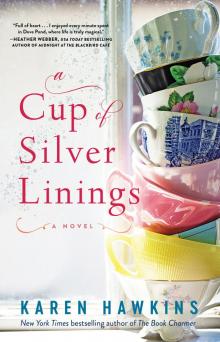 A Cup of Silver Linings
A Cup of Silver Linings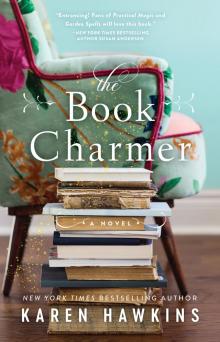 The Book Charmer
The Book Charmer The Prince and I
The Prince and I![Duchess Diaries [2] How to Pursue a Princess Read online](http://i1.bookreadfree.com/i/03/12/duchess_diaries_[2]_how_to_pursue_a_princess_preview.jpg) Duchess Diaries [2] How to Pursue a Princess
Duchess Diaries [2] How to Pursue a Princess To Scotland, With Love
To Scotland, With Love Her Master and Commander
Her Master and Commander A Belated Bride
A Belated Bride 1794_Charlotte
1794_Charlotte The Abduction of Julia
The Abduction of Julia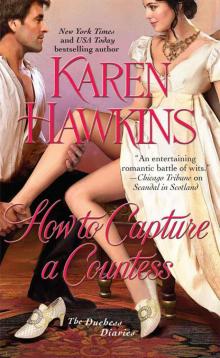 How to Capture a Countess (Duchess Diaries 1)
How to Capture a Countess (Duchess Diaries 1) Karen Hawkins - MacLean 1 How to Abduct a Highland Lord
Karen Hawkins - MacLean 1 How to Abduct a Highland Lord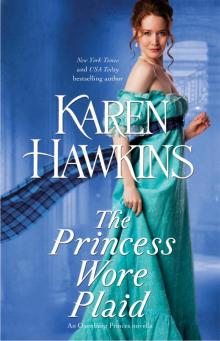 The Princess Wore Plaid
The Princess Wore Plaid How to Abduct a Highland Lord
How to Abduct a Highland Lord THE LEGEND OF NIMWAY HALL: 1794 - CHARLOTTE
THE LEGEND OF NIMWAY HALL: 1794 - CHARLOTTE Caught by the Scot
Caught by the Scot The Lady in the Tower
The Lady in the Tower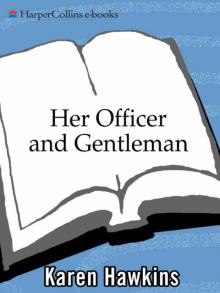 Her Officer and Gentleman
Her Officer and Gentleman Hurst 02 - Scandal in Scotland
Hurst 02 - Scandal in Scotland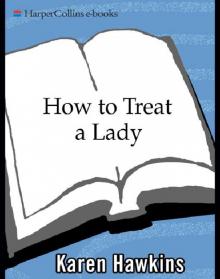 How to Treat a Lady
How to Treat a Lady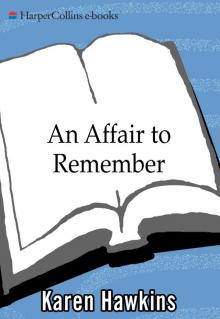 An Affair to Remember
An Affair to Remember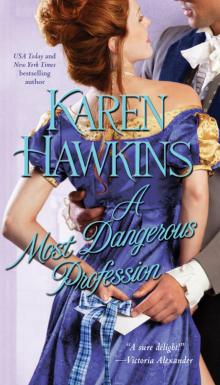 A Most Dangerous Profession
A Most Dangerous Profession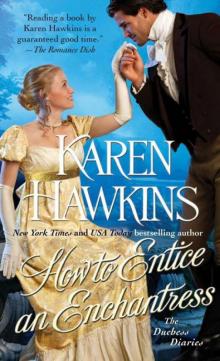 How to Entice an Enchantress
How to Entice an Enchantress The MacLeans: Sleepless in Scotland
The MacLeans: Sleepless in Scotland Confessions of a Scoundrel
Confessions of a Scoundrel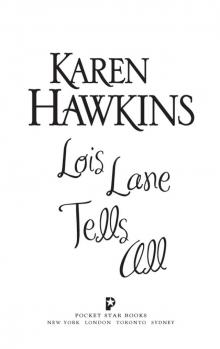 Lois Lane Tells All
Lois Lane Tells All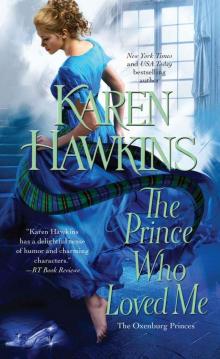 The Prince Who Loved Me (The Oxenburg Princes)
The Prince Who Loved Me (The Oxenburg Princes) The Seduction of Sara
The Seduction of Sara The Laird Who Loved Me
The Laird Who Loved Me The MacLeans - Sleepless in Scotla
The MacLeans - Sleepless in Scotla And the Bride Wore Plaid
And the Bride Wore Plaid THE LEGEND OF NIMWAY HALL_1794_CHARLOTTE
THE LEGEND OF NIMWAY HALL_1794_CHARLOTTE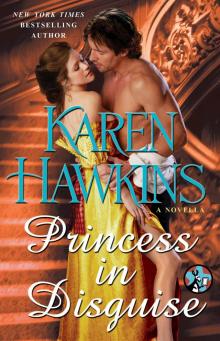 Princess in Disguise
Princess in Disguise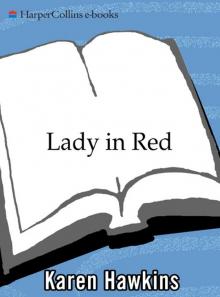 Lady in Red
Lady in Red Much Ado About Marriage
Much Ado About Marriage Twelve Kisses to Midnight: A Novella (The Oxenburg Princes)
Twelve Kisses to Midnight: A Novella (The Oxenburg Princes) Mad for the Plaid
Mad for the Plaid An Encounter at Hyde Park
An Encounter at Hyde Park